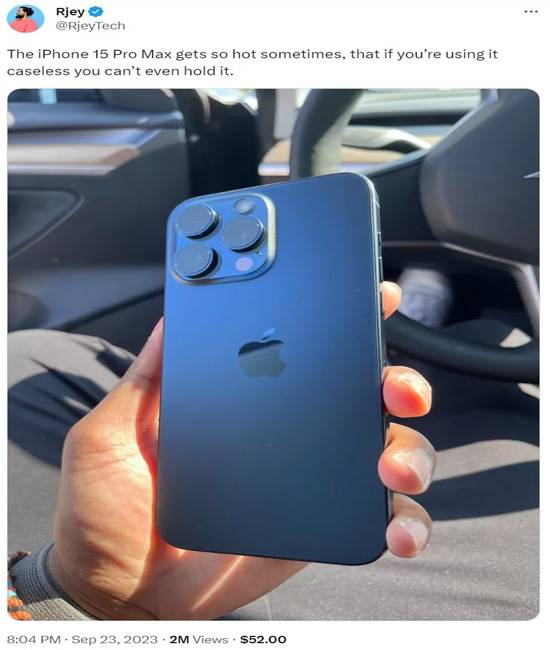Shocking news for Apple iPhone 15 users
Shares

Numerous Apple device users have expressed their concerns regarding the heating issues plaguing the recently launched iPhone 15 series. These grievances have found a voice not only among the general public but have also caught the attention of tech enthusiasts and correspondents, with notable instances occurring on platforms like 9to5Mac.
One such instance involves Ian Zelbo, an employee at 9to5Mac, who candidly shared his experience of encountering overheating problems with his iPhone 15 Pro Max. His predicament unfolded while charging the device using a wired connection on the social media platform formerly known as Twitter, now referred to as "X." This incident underscores the scope of the issue, even among individuals closely connected to the tech industry.
However, Ian Zelbo's case is not an isolated one. Numerous iPhone 15 users have reported encountering similar overheating problems, not necessarily while charging their devices, but during routine activities such as browsing social media. These collective grievances point to a potential issue that transcends individual circumstances and suggests a broader concern.
Nevertheless, it is important to bear in mind that the initial heating of new iPhone models is not an unusual phenomenon. During the first 24 hours of usage, various background processes, such as iCloud backup transfers from older devices and software installations, can contribute to elevated temperatures. Thus, while overheating concerns are valid, they must be considered in the context of the device's initial setup and operation.
In conclusion, the overheating complaints surrounding the iPhone 15 series have garnered attention from both consumers and industry insiders. Instances like Ian Zelbo's firsthand experience serve as a reminder of the issue's significance. However, it's crucial to differentiate between normal initial heating during setup and persistent overheating problems to understand the true extent of this issue and its potential implications for Apple's latest smartphone offerings.
